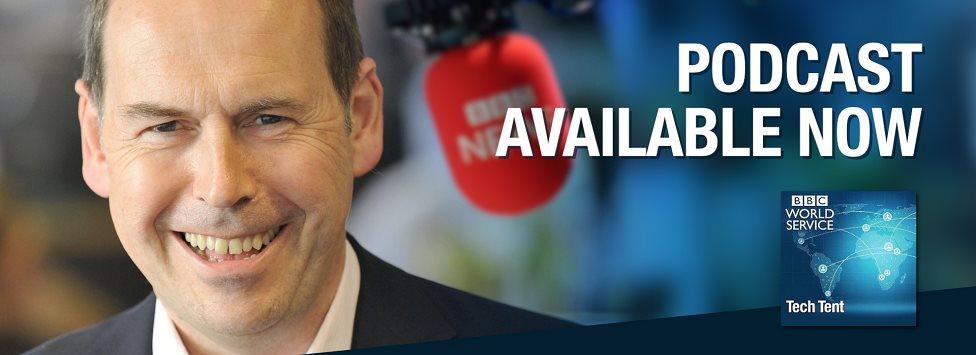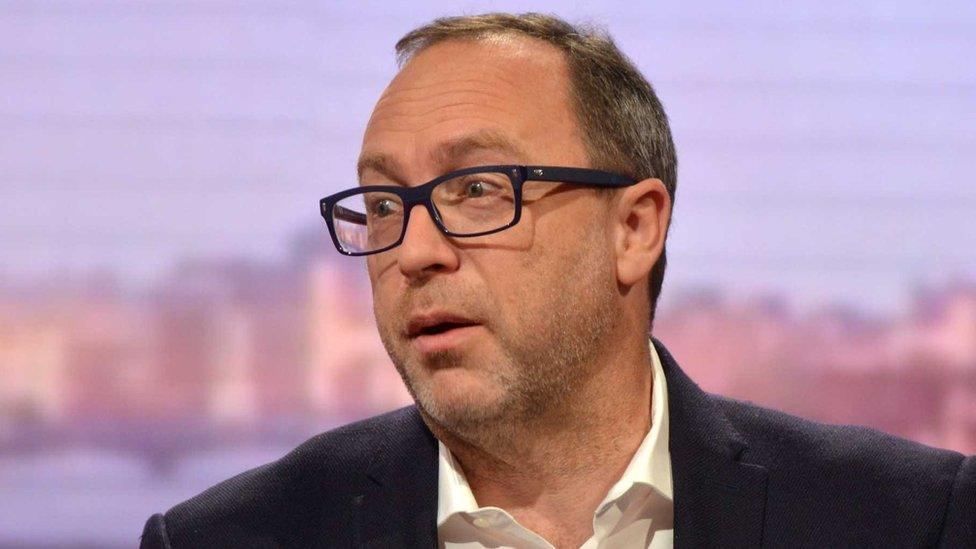Tech Tent: Social giants get grilled
- Published

Stream or download, external the latest Tech Tent episode on the BBC website
Listen to previous episodes on the BBC website
Follow Tech Tent, external on Twitter

In the week that the term "fake news" was named word of the year by Collins dictionary, the Tech Tent podcast explores how Facebook, Google and Twitter fared when they were grilled by US senators over their role in spreading misinformation.
We also find out about an attempt to build a platform for news you can trust and we meet the man who has discovered that clicks have to go with bricks if you offer online shopping in Somalia.
Senate v Silicon Valley
This was the week that executives from Facebook, Google and Twitter got first hand experience of how the political mood towards Silicon Valley has changed.
Instead of the customary wide-eyed enthusiasm for what their technology can do for America, they found deep distrust about their role in last year's US presidential election.

Twitter, Facebook and Google, which owns YouTube, were grilled by senators
In two days of Senate hearings about how social media may have aided and abetted Russian attempts to sway the election, it was Facebook that was the main target. Senator Al Franken, a comedian before he entered politics, wanted to know why political ads being paid for in roubles "didn't spell something bad".
On Tech Tent, we explore what new information we learned from those Senate hearings about the Russian social media propaganda effort.
One lesson for the social media giants may be to take these hearings more seriously. The companies came under fire from one Senator for sending their lawyers rather than their bosses. Next time, perhaps we will see Mark Zuckerberg, Larry Page and Jack Dorsey turn up. Now that would be a hot ticket.
Can blockchain beat fake news?
Given the growing concern about the spread of misinformation online, it is no wonder there is a search for new platforms to combat the fakery phenomenon. One of them is Wikitribune, external, the brainchild of Wikipedia founder Jimmy Wales. It started testing its crowd-edited and checked news service this week to somewhat mixed reviews.
Another start-up wants to use that most fashionable of new ideas - blockchain technology - to act as a guarantor of authenticity. Publiq is planning what it describes as a "decentralised content platform that offers merit-based and instant remuneration to authors and advertisers in order to combat fake news".
I found that slightly opaque, to say the least, but the chief executive Alexandre Tabbakh explained that it was all about disrupting a business model that rewards clicks at the expense of accuracy and authenticity.

Jimmy Wales wants to tackle fake news
His idea is that writers will be rewarded according to their reputation, with their work stored forever on the blockchain as proof of their credentials. Advertisers will then flock to the platform, knowing their messages will be placed next to reputable content, not fake news.
It is an intriguing idea. But our special guest, the technology writer Kate Bevan, shared my scepticism. The problem will be convincing journalists to come to Publiq in the first place. They may like the idea of a platform free from fakery, but they will want to be convinced that there is an audience for their work.
Clicks and bricks in Somalia
Now here's a challenge: how do you set up an e-commerce business in a country where less than a third of the population has access to the internet and few people have bank accounts? It does not sound easy.
But Saed Mohamed, a young entrepreneur from Somalia, found a way to get his online shopping business Muraadso off the ground. He quickly realised that he needed to combine an online operation with a real world presence - bricks as well as clicks.
"We have our site and a social presence but at the same time we have physical stores that we can deliver from, and also give customers an experience."
He says his customers still want to touch and feel products and there is also an issue of confidence. "They don't trust pure e-commerce sites."
And as for dealing with payments when few have a bank account, Muraadso offers customers the chance to pay cash on delivery or use a popular mobile payments service.
Somalis may not be alone in wanting to mix and match when it comes to online shopping. After all, the giant of the industry Amazon has just bought Whole Foods, a bricks and mortar retail chain.
There are also signs that the old-fashioned experience of browsing a bookstore may be making a return, with the UK's biggest book chain Waterstones returning to profit in February after seven years of losses. Perhaps the long predicted death of high street shopping may not be quite so imminent after all.